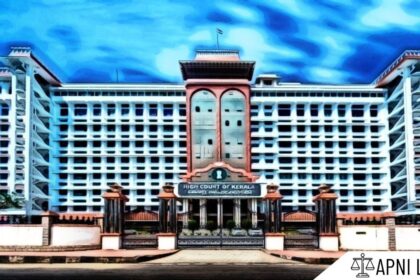Code: Section 301 BNSS
301. In this Chapter,—
(a) “detained” includes detained under any law providing for preventive detention;
(b) “prison” includes,—
(i) any place which has been declared by the State Government, by general or special order, to be a subsidiary jail;
(ii) any reformatory, Borstal institution or institution of a like nature.
Explanation of Section 301 BNSS
Section 301 BNSS establishes the key definitions used throughout this Chapter, clarifying the meanings of the terms “detained” and “prison” for the purposes of applying the provisions of this Sanhita.
- Definition of “detained”:
The term “detained” is broadly defined to include not only those individuals who are held in custody under regular criminal laws but also those detained under any law providing for preventive detention. This ensures that the provisions of this Chapter apply to all forms of detention, regardless of the legal framework under which a person is held. - Definition of “prison”:
The definition of “prison” is comprehensive and extends beyond traditional jails. It includes:- (i) Subsidiary jails: These are places that the State Government has officially declared, by general or special order, to serve as subsidiary jails.
- (ii) Reformatories, Borstal institutions, or similar institutions: This covers facilities designed for the rehabilitation or reform of offenders, thereby broadening the scope of what is considered a prison within this Chapter.
By clearly defining these terms, Section 301 BNSS ensures that all subsequent provisions of the Sanhita are interpreted consistently and apply to the full range of detention facilities and circumstances.
Illustration
Example 1: Preventive Detention
A person is detained under a law that provides for preventive detention due to concerns about potential involvement in activities that may disrupt public order. Under Section 301, this person is considered “detained” for the purposes of this Chapter, ensuring that any legal procedures or rights afforded by this Sanhita apply equally to them.
Example 2: Inclusion of Subsidiary Jails
In a State, the government has declared several small jails as subsidiary jails by general order. These facilities, although not traditional prisons, are covered by the definition of “prison” in Section 301, meaning that all the provisions applicable to prisons in this Chapter will also apply to these subsidiary jails.
Example 3: Reformatory Institutions
A young offender is placed in a Borstal institution for rehabilitation. Even though this institution is primarily aimed at reform rather than punishment, it falls under the definition of “prison” in Section 301. Consequently, the legal protections and procedures laid out in this Chapter will govern the treatment and rights of the offender while in that institution.
Common Questions and Answers on Section 301 BNSS
1. What does the term “detained” include according to Section 301?
- Answer:
“Detained” includes any person held in custody, including those detained under laws providing for preventive detention. This broad definition ensures that all forms of detention are covered under this Chapter.
2. How is “prison” defined in this Chapter?
- Answer:
“Prison” is defined to include not only traditional jails but also any place declared by the State Government as a subsidiary jail, as well as reformatories, Borstal institutions, or any similar institution designed for the rehabilitation of offenders.
3. Why is it important to have these definitions in Section 301?
- Answer:
These definitions ensure that the provisions of the Sanhita are applied consistently and comprehensively, covering all relevant types of detention and correctional facilities. This clarity helps avoid ambiguity in the interpretation and application of the law.
4. Do these definitions affect how other provisions of the Sanhita are applied?
- Answer:
Yes, by clearly defining “detained” and “prison,” Section 301 ensures that all subsequent provisions of this Chapter are interpreted in a consistent manner, regardless of the specific circumstances under which a person is held or the type of facility in which they are confined.
Conclusion
Section 301 BNSS plays a critical role in establishing the scope of the Sanhita by defining “detained” and “prison” broadly. This ensures that all forms of detention—including preventive detention and confinement in subsidiary jails, reformatories, or Borstal institutions—are subject to the same legal provisions and protections outlined in this Chapter. These clear definitions help create a consistent and fair legal framework for the treatment of individuals in various forms of detention. For further legal insights and detailed guidance on the application of these definitions and related provisions, visit ApniLaw.








